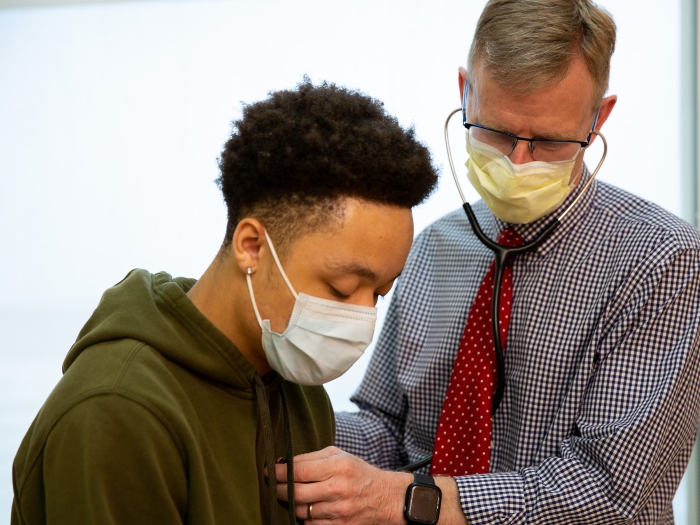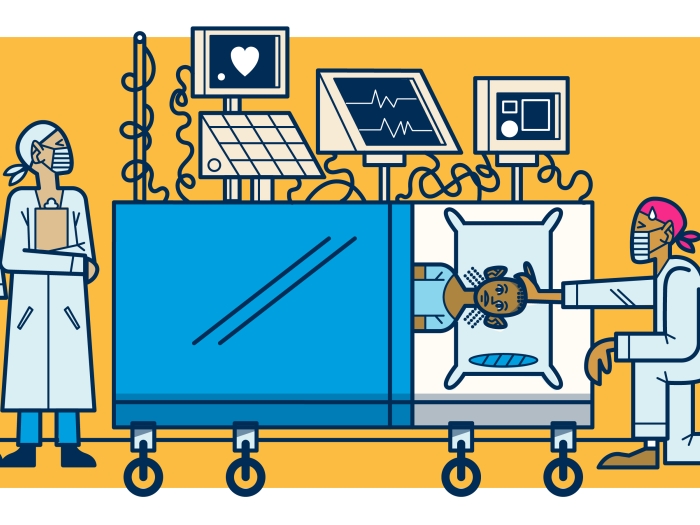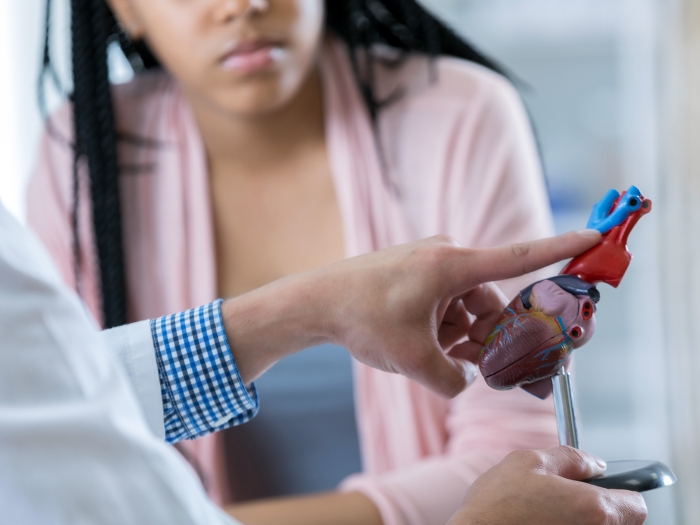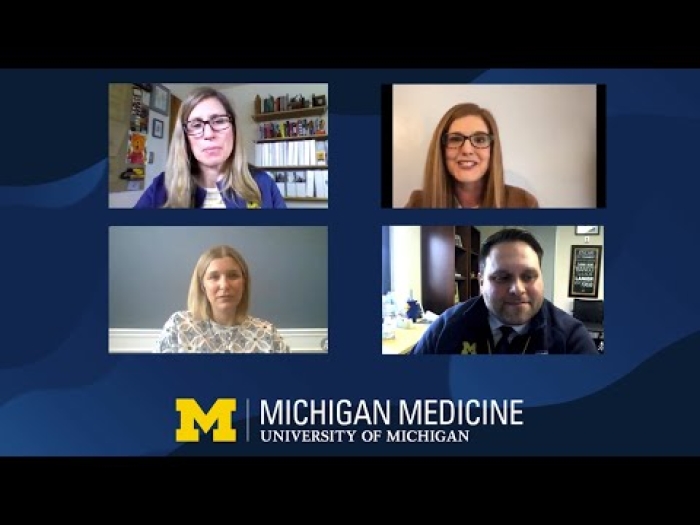A high school golfer with a severe congenital heart condition got his own Masters moment, thanks to Make-A-Wish Michigan.
1:00 PM
Author |
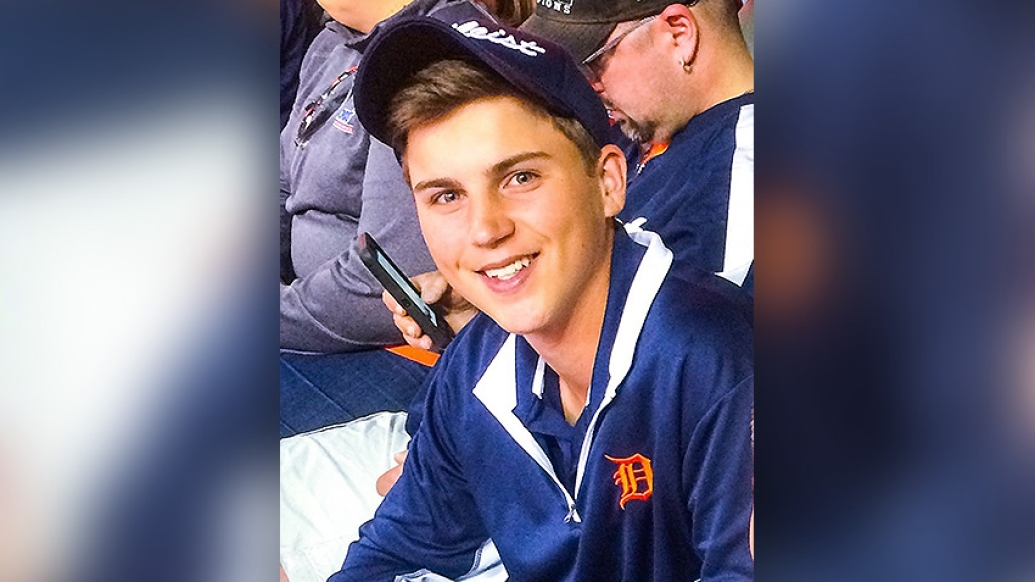
Born with a severe congenital heart condition, Keaton Cleland always knew he wouldn't be able to play contact sports such as football.
MORE FROM MICHIGAN: Sign up for our weekly newsletter
But by age 4, he was already taking his first swings on the golf course.
Now 16, the avid golfer, who is a patient at University of Michigan C.S. Mott Children's Hospital, recently got a VIP experience at one of golf's meccas: the Masters Tournament. Make-A-Wish Michigan sent Keaton, along with older sister Emily and parents Doug and Jessica to Augusta, Georgia, to watch the final two rounds of the most storied tournament in golf this weekend.
"It's always been a dream to go there," says Keaton. "I was pretty pumped when they called to tell me. I'm thankful for the opportunity."
Highlights from the trip included chatting with two-time major winner Jordan Spieth near the practice range, and seeing him shoot out of the pine straw on the 13th hole, as well as meeting the golfer's brother Steven Spieth on the course and touring the new Masters press building.
And of course, everyone enjoyed having the chance to be near the 18th green watching Sergio Garcia birdie the first playoff hole to capture his first major win and the Masters Green Jacket.
The experience is a long way since Keaton's journey at Mott, where he underwent three open heart surgeries before his second birthday.
15 weeks in the hospital
Keaton was born with hypoplastic left heart syndrome, which has sometimes been referred to as "half a heart." The disease affects normal blood flow through the heart and leaves the left side of the heart critically undeveloped and too small to perform its job of providing blood flow to the entire body. Without intervention, all infants with HLHS will die within days to a month after birth.
Keaton's parents learned about the diagnosis during Jessica's ultrasound in her 19th week of pregnancy. The family, who lives in Metamora, Michigan, chose to seek care from the Congenital Heart Center at Mott.
"They told us it was a boy. Then they explained they thought something was wrong with his heart," Jessica says. "We did a lot of research and talked to a lot of people about what was the best place for treatment. We chose Mott because it was renowned for congenital heart care."
The family spent an estimated 15 weeks of Keaton's first 21 months of life at Mott, in and out for treatment and surgeries led by Mott pediatric cardiac surgeon Edward Bove, M.D. The last surgery, called a Fontan procedure, involved redirecting the blue venous blood flow directly to Keaton's lungs to reduce strain on the right side of his heart and improve his oxygen levels.
'He does not let anything hold him back'
There have been bumps in the road, including complications from fluid around his lungs following the final surgery and being sent home with an oxygen tank and feeding tube as a toddler. Children who have had a Fontan procedure are also much more sensitive to dehydration and respiratory infections, and Keaton has been admitted to the hospital for what may otherwise be considered routine illnesses.
Fontan patients don't have the stamina for prolonged activities, particularly in extreme weather, which makes it difficult for Keaton to tag along for too long with his dad on ice fishing and duck hunting trips. Still, he has been able to swim, play baseball and golf. This is his second year on the varsity golf team at Oxford High School.
And his parents often have to remind him of doctor-ordered restrictions.
"We try to explain why he has some limitations, but he doesn't want to hear it. He can barely sit still for two seconds," Jessica says with a laugh. "He does not let anything hold him back. Golf has been such a great sport for him, something he's always been able to do and excel in. He was pretty excited to see some of the golfers who have been role models at the Masters.
"As traumatic as some of this has been, a lot of positives came out of it and that's how we choose to see things," she adds. "You just realize how fortunate you are when you have a kid like Keaton. He has taught us a lot about how to live life and every minute."
Living life to the fullest
Surgeries for HLHS never truly "fix" the heart, and complications are possible over time. But thanks to revolutionary advancements over the past few decades, HLHS patient survival rates have significantly improved. The oldest HLHS patients are now in their 30s, and researchers at centers such as U-M continue to study treatment.
SEE ALSO: Tiny Heart Repaired While Baby Still in the Womb
"Keaton has been through a lot in his life, but he's the poster child for hypoplastic left heart syndrome," Doug says.
"His first few years were trying times. There are so many unknowns. I want other parents who are going through something like this to hear Keaton's story. It's scary. I've been there. But it can turn out OK. We've been very blessed.
"I'm thankful to Make-A-Wish for giving my golf-fanatic kid this experience," he adds of the Masters trip. "We appreciated sharing this special experience as a family. It was amazing."
Make-A-Wish sent a limousine to transport the Clelands to and from the airport, and they stayed in the Hilton suites for the weekend as part of the experience.
"Fontan patients like Keaton are generally restricted from contact sports and some competitive sports, but we encourage them to remain active and find activities they can participate in," says Keaton's pediatric cardiologist, Carly Fifer, M.D.
"We love to see our heart patients living life to the fullest. Keaton is a shining example of that. If you meet Keaton, you will see a healthy, active teenager. You would never guess he has been through three surgeries, multiple hospital admissions and is on heart medications. We are so proud of the young man he has become, and are so happy for the opportunity he received through Make-A-Wish to attend the Masters golf tournament."

Explore a variety of health care news & stories by visiting the Health Lab home page for more articles.

Department of Communication at Michigan Medicine
Want top health & research news weekly? Sign up for Health Lab’s newsletters today!


